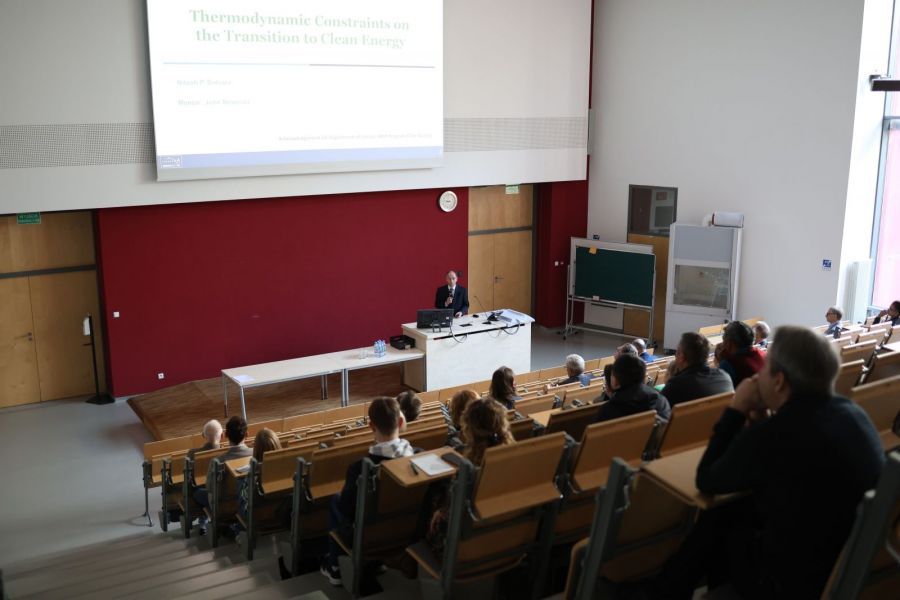Prof Nitash Balsara, a chemist from the University of California, Berkeley and a prominent scientist in the field of lithium-ion battery optimisation, visited the AMU. He arrived at the invitation of Prof. Michal Banaszak, Vice-Rector for Digitalisation and Cooperation with Business Cooperation.
- I have been working with Prof. Balsara since the early 1990s, and we have had the opportunity to write several papers together within the area of polymer physics. The research is also being used to optimise the performance of lithium-ion batteries. It should be noted that Prof. Balsara's collaborator is Steven Chu, Nobel Prize winner in physics in 1997," says Prof. Banaszak.
The eminent chemist from the University of California delivered a lecture at the Faculty of Chemistry on Tuesday, 17 October. The starting point was the exposure of the increasing concentration of carbon dioxide in the atmosphere as the main factor causing adverse climate change.
Prof Balsara showed how a significant reduction in this concentration is impossible and presented, for the first time in Poznań, evidence to support the thesis based on thermodynamics and entropy estimation. Therefore, the only thing we can do for climate stability - according to the lecturer - is to reduce CO2 emissions and from this perspective, Prof. Balsara analysed the major chemical technologies used to generate, store and finally supply energy.
He mentioned and compared hydrogen and lithium-ion battery technologies as the two most promising technologies in the area of energy supply. He emphasised in terms of CO2 emissions, lithium-ion batteries are a better choice due to their rechargeability. In contrast, the limitation of this technology is the availability of lithium on Earth. The lecture concluded with a meaningful question - what and how to replace lithium?
Prof Nitash Balsara's lecture was organised at the School of Science and was held jointly with a mini-conference on chemical energy sources. The following speech in this series, entitled 'A walk through the gardens of the Queen of Sciences', will be given by Professor Jerzy Kaczorowski from the Faculty of Mathematics and Computer Science on 5 December at 4 p.m.
Photo: Martyna Płaczek










